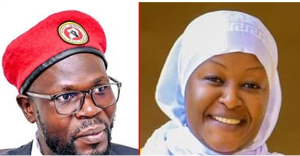Accra, Sept. 28, GNA - Policy makers, academicians and the donor community are meeting in Accra to analyse the struggles over land and their effects on the citizenry. The roundtable on 93Contesting Land and Custom in Ghana: State, Chief and the Citizen=94 would be discussing re-inventing rural land relations, land conflicts and their effects on local structures, policy alignments with the powerful and the poor and co-operative solutions or continued strife.
The meeting, organized by the African Institute, University of Ghana, the Department of Land Economy, Kwame Nkrumah University of Science and Technology, the Van Vollenhoven Institute for Law, Governance and Development of Leiden University with funds from the Dutch Embassy in Accra, would also discuss the complexity of the concept of customary law and current cases in land administration. Professor Kojo Amanor of the African Studies, University of Ghana, speaking on: "The changing face of customary land tenure in rural Ghana" noted that the changing values in land have resulted in redefining land ownership and tenure.
He said the contestation of rights to land and State; traditional authorities and citizens had led to the interventions to manage and control the land.
He explained that while the State intervened to introduce regulations, create stable conditions for investors and get land for development projects, the traditional authorities claimed allodial title to the land; the right to manage its own land affairs and the right to appropriate land for its local development. The rural poor also defend their rights to farm land, which they use for livelihood. Prof Amanor noted that while chiefs had the right to sell land and to claim ultimate ownership of the land, local citizens had the right to use land and convert land into family land for future use by their descendants.
"However, when all the land under the domain of the chief has either been sold or occupied, the definitions of allodial and usufruct result in a paradox.
The traditional authorities can only exercise their allodial rights by cancelling out the user rights of the citizens, and the rights of the citizens hinder the allodial claims of chiefs", he said. Dr Stefano Boni, a lecturer at the University of Modena of Reggio Emilia, Spain, speaking on: "Traditional ambiguities and authoritarian interpretations in Sefwi land disputes" said the causes were mainly due to the fact that some sections or their ancestors migrated from other regions and making it difficult to determine who had the right over the land.
He said frequent economic pressures resulted in changing frameworks of land management and changing social relations, which transformed customary land practices.
General News of Thursday, 28 September 2006
Source: GNA












